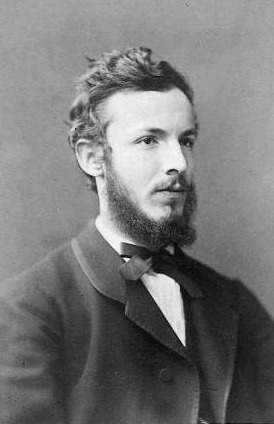|
1874 In Science
The year 1874 in science and technology involved some significant events, listed below. Astronomy * December 9 – a transit of Venus across the Sun is observed in Muddapur, India, by an astronomical expedition led by Pietro Tacchini Chemistry * Per Teodor Cleve discovers that didymium is in fact two elements, now known as ''neodymium'' and ''praseodymium'' * C. R. Alder Wright synthetizes heroin * Othmar Zeidler synthesises DDT * Carl Schorlemmer publishe ''A Manual of Chemistry of the Carbon Compounds; or, Organic Chemistry'' * Jacobus van 't Hoff and Achille Le Bel independently propose that organic molecular models can be three-dimensional Exploration * February – the ''Challenger'' expedition provides geological evidence for the existence of the continent of Antarctica History of science * John William Draper publishes ''History of the Conflict between Religion and Science'' Mathematics * Georg Cantor's paper, "" ("On a Property of the Collection of All Real Algeb ... [...More Info...] [...Related Items...] OR: [Wikipedia] [Google] [Baidu] |
Science
Science is a systematic endeavor that builds and organizes knowledge in the form of testable explanations and predictions about the universe. Science may be as old as the human species, and some of the earliest archeological evidence for scientific reasoning is tens of thousands of years old. The earliest written records in the history of science come from Ancient Egypt and Mesopotamia in around 3000 to 1200 BCE. Their contributions to mathematics, astronomy, and medicine entered and shaped Greek natural philosophy of classical antiquity, whereby formal attempts were made to provide explanations of events in the physical world based on natural causes. After the fall of the Western Roman Empire, knowledge of Greek conceptions of the world deteriorated in Western Europe during the early centuries (400 to 1000 CE) of the Middle Ages, but was preserved in the Muslim world during the Islamic Golden Age and later by the efforts of Byzantine Greek scholars who brought Greek ... [...More Info...] [...Related Items...] OR: [Wikipedia] [Google] [Baidu] |
Georg Cantor
Georg Ferdinand Ludwig Philipp Cantor ( , ; – January 6, 1918) was a German mathematician. He played a pivotal role in the creation of set theory, which has become a fundamental theory in mathematics. Cantor established the importance of one-to-one correspondence between the members of two sets, defined infinite and well-ordered sets, and proved that the real numbers are more numerous than the natural numbers. In fact, Cantor's method of proof of this theorem implies the existence of an infinity of infinities. He defined the cardinal and ordinal numbers and their arithmetic. Cantor's work is of great philosophical interest, a fact he was well aware of. Originally, Cantor's theory of transfinite numbers was regarded as counter-intuitive – even shocking. This caused it to encounter resistance from mathematical contemporaries such as Leopold Kronecker and Henri Poincaré and later from Hermann Weyl and L. E. J. Brouwer, while Ludwig Wittgenstein raised ... [...More Info...] [...Related Items...] OR: [Wikipedia] [Google] [Baidu] |

